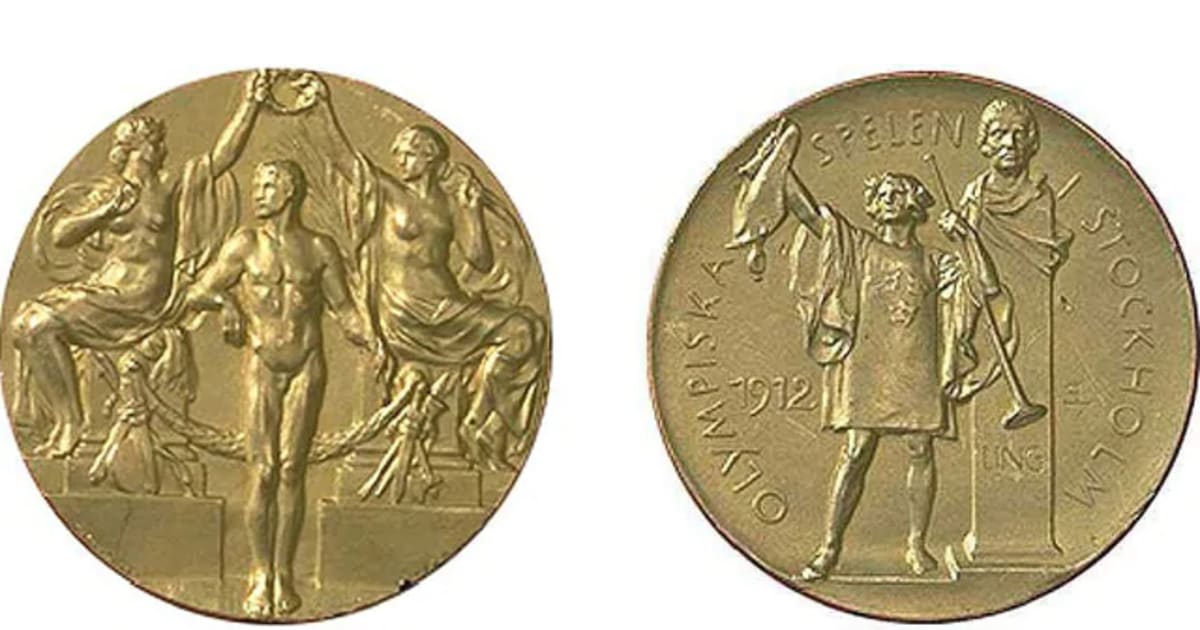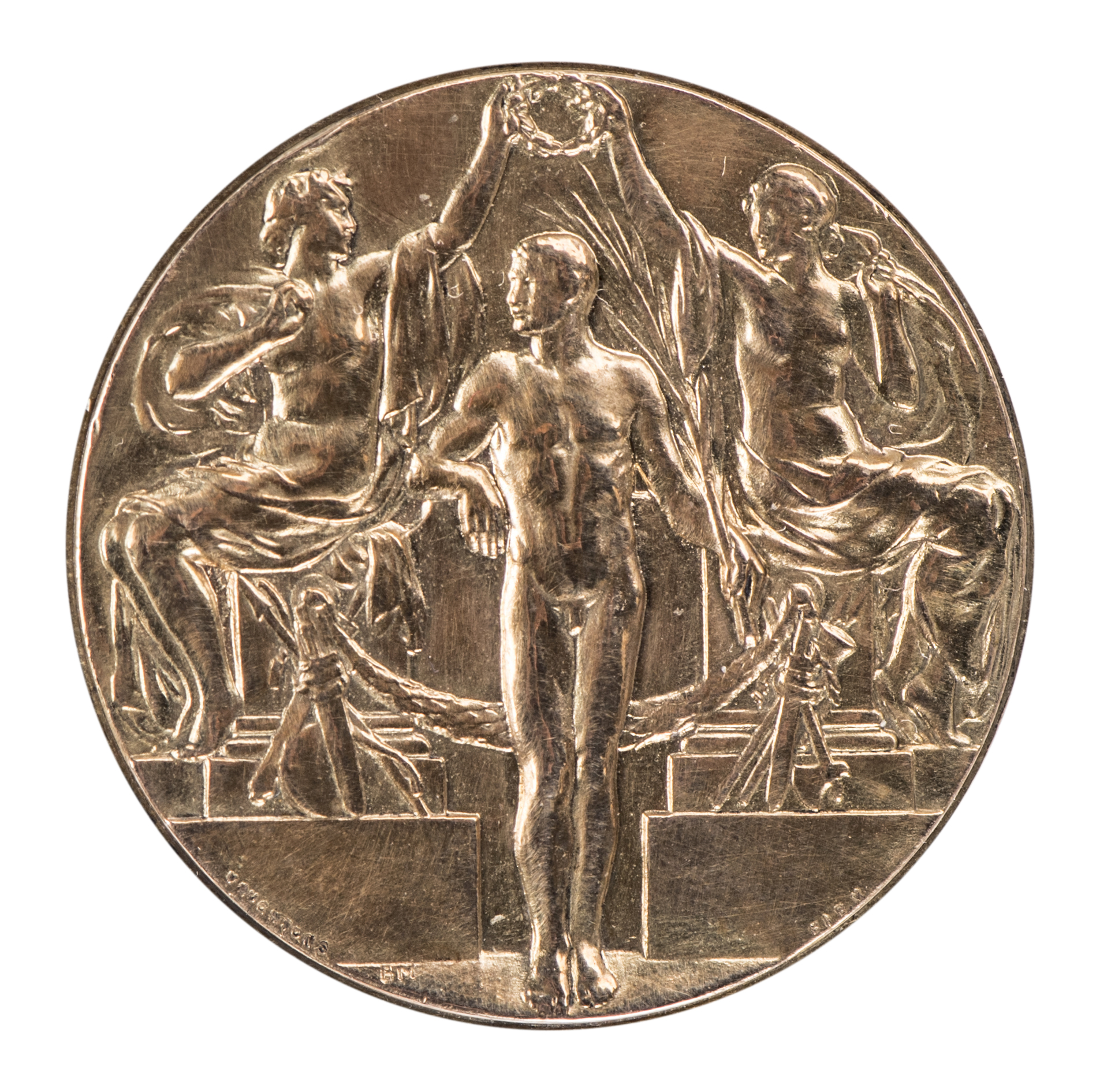The 1912 Olympic Games, held in Stockholm, Sweden, remain one of the most iconic moments in sports history. The 1912 Olympic Gold Medal symbolizes excellence, perseverance, and the pursuit of greatness. As the world gathered to witness the best athletes compete, the significance of this event transcended beyond mere sportsmanship—it became a testament to human potential and unity.
For many athletes, winning the 1912 Olympic Gold Medal was the pinnacle of their careers. This achievement not only brought them recognition but also cemented their legacy in the annals of history. The games themselves were groundbreaking, introducing innovations that would shape the future of the Olympics.
In this article, we will delve into the rich history of the 1912 Olympic Games, exploring the stories behind the gold medal winners, the challenges they faced, and the legacy they left behind. Join us as we uncover the fascinating details of this historic event.
Read also:Hugh Jackman In London A Comprehensive Exploration Of His Journey And Impact
Table of Contents
- The History of the 1912 Olympic Games
- The Significance of the 1912 Olympic Gold Medal
- Innovations Introduced in the 1912 Olympics
- Notable 1912 Olympic Gold Medal Winners
- Biography of Legendary Athletes
- Data and Statistics of the 1912 Olympics
- The Impact of the 1912 Olympics on Global Sports
- Challenges Faced by Athletes in 1912
- Legacy of the 1912 Olympic Gold Medal
- Conclusion and Call to Action
The History of the 1912 Olympic Games
The 1912 Summer Olympics, officially known as the Games of the V Olympiad, were held in Stockholm, Sweden, from July 6 to July 22, 1912. This edition of the Olympics was remarkable for several reasons, including its emphasis on organization, fairness, and innovation. With 28 nations participating and over 2,400 athletes competing in 102 events across 14 sports, the 1912 Olympics set new standards for international sporting events.
One of the standout features of the 1912 Olympics was the use of electronic timing devices for track and field events. This marked a significant advancement in ensuring accuracy and transparency in judging results. Additionally, the games introduced the decathlon and modern pentathlon, which have since become staples of the Olympic program.
Why the 1912 Olympics Were Unique
The 1912 Olympics were unique due to their focus on inclusivity and innovation. For the first time, athletes from Africa and Asia participated, expanding the global reach of the games. Moreover, the Swedish hosts ensured that the event was conducted with meticulous planning, setting a benchmark for future Olympiads.
The Significance of the 1912 Olympic Gold Medal
Winning a gold medal at the 1912 Olympics was not just about personal achievement; it represented the culmination of years of dedication, hard work, and sacrifice. The 1912 Olympic Gold Medal symbolized the highest level of athletic performance and was a source of national pride for the athletes' home countries.
Each gold medal was crafted with meticulous attention to detail, featuring the head of the goddess of victory, Nike, on one side and a depiction of the Stockholm Stadium on the other. These medals remain highly prized today, both for their historical value and their craftsmanship.
What Makes the 1912 Gold Medal Special?
- Handcrafted design with intricate details
- Symbol of excellence and achievement
- Historical significance in the evolution of Olympic medals
Innovations Introduced in the 1912 Olympics
The 1912 Olympics were a hub of innovation, introducing several advancements that revolutionized the way sports were conducted and judged. One of the most notable innovations was the use of electric timing devices, which provided precise measurements for track and field events. This technology eliminated human error and ensured fairness in determining winners.
Read also:Mom Son Forced Porn
Another significant development was the introduction of the modern pentathlon, a multi-discipline event that tested athletes' skills in fencing, swimming, equestrianism, pistol shooting, and cross-country running. This event was designed to simulate the skills required by a cavalry soldier, showcasing the versatility and adaptability of athletes.
Key Innovations at the 1912 Olympics
- Electric timing devices for track and field
- Introduction of the modern pentathlon
- Use of photography to capture key moments
Notable 1912 Olympic Gold Medal Winners
The 1912 Olympics produced a roster of legendary athletes whose achievements continue to inspire generations. Among the most notable gold medalists were Jim Thorpe, who won both the decathlon and pentathlon, and Hannes Kolehmainen, the Finnish runner who dominated the long-distance events.
Thorpe's performance was particularly remarkable, as he set world records in both events and became the first Native American to win an Olympic gold medal. His achievements were celebrated worldwide, and he remains one of the most celebrated athletes in history.
Top Gold Medalists of the 1912 Olympics
- Jim Thorpe – Decathlon and Pentathlon
- Hannes Kolehmainen – Long-distance running
- Alfréd Hajós – Swimming
Biography of Legendary Athletes
Jim Thorpe, born on May 28, 1887, in Oklahoma, USA, was a Native American athlete whose versatility and talent made him a household name. Below is a table summarizing his key achievements and personal details.
| Name | Birthdate | Country | Sport | Major Achievements |
|---|---|---|---|---|
| Jim Thorpe | May 28, 1887 | USA | Decathlon, Pentathlon | 1912 Olympic Gold Medalist |
Hannes Kolehmainen: The Flying Finn
Hannes Kolehmainen, a Finnish long-distance runner, dominated the 1912 Olympics by winning three gold medals in the 5,000m, 10,000m, and cross-country events. His performances earned him the nickname "The Flying Finn" and cemented his place in Olympic history.
Data and Statistics of the 1912 Olympics
The 1912 Olympics featured a total of 2,408 athletes from 28 countries, competing in 102 events across 14 sports. Below are some key statistics from the games:
- Number of participating nations: 28
- Total number of athletes: 2,408
- Number of events: 102
- Number of gold medals awarded: 102
These numbers highlight the growing popularity of the Olympics and the increasing participation from countries around the world.
The Impact of the 1912 Olympics on Global Sports
The 1912 Olympics had a profound impact on the global sports landscape, setting new standards for organization, fairness, and innovation. The introduction of electronic timing devices and the modern pentathlon paved the way for future advancements in sports technology and competition formats.
Moreover, the games fostered a spirit of international cooperation and unity, bringing together athletes from diverse backgrounds to compete on a level playing field. This legacy continues to influence the modern Olympic movement, emphasizing the values of excellence, friendship, and respect.
Long-term Effects of the 1912 Olympics
- Promotion of international sportsmanship
- Advancements in sports technology
- Expansion of Olympic disciplines
Challenges Faced by Athletes in 1912
Athletes competing in the 1912 Olympics faced numerous challenges, both physical and logistical. Traveling to Stockholm from distant countries was a daunting task, requiring long journeys by ship or train. Additionally, the athletes had to adapt to unfamiliar climates and time zones, making their preparation even more challenging.
Despite these obstacles, the athletes demonstrated remarkable resilience and determination, pushing themselves to achieve greatness. Their stories serve as a testament to the indomitable human spirit and the power of perseverance.
Overcoming Obstacles in 1912
- Long and arduous journeys to Stockholm
- Adjusting to new climates and environments
- Maintaining focus and discipline under pressure
Legacy of the 1912 Olympic Gold Medal
The legacy of the 1912 Olympic Gold Medal extends far beyond the games themselves. These medals represent the highest achievement in sports and continue to inspire athletes around the world. The innovations introduced during the 1912 Olympics have shaped the modern Olympic movement, ensuring that the spirit of excellence and fairness endures for generations to come.
Today, the 1912 Olympics are remembered as a turning point in the history of international sports, showcasing the potential for unity and collaboration on a global scale. The stories of the athletes who competed in Stockholm serve as a reminder of the power of human potential and the pursuit of greatness.
Why the 1912 Gold Medal Matters Today
- Symbol of excellence and achievement
- Inspiration for modern athletes
- Foundation for future Olympic innovations
Conclusion and Call to Action
The 1912 Olympic Games and the 1912 Olympic Gold Medal hold a special place in the history of sports. They represent the pinnacle of athletic achievement and the pursuit of excellence. As we reflect on the stories of the athletes who competed in Stockholm, we are reminded of the enduring values of perseverance, unity, and sportsmanship.
We invite you to share your thoughts and insights in the comments section below. Do you have a favorite athlete or event from the 1912 Olympics? Let us know! Additionally, feel free to explore other articles on our site to learn more about the fascinating world of sports history.
Together, let's celebrate the legacy of the 1912 Olympic Gold Medal and the athletes who made it possible.


